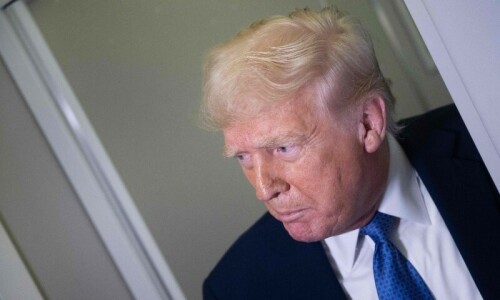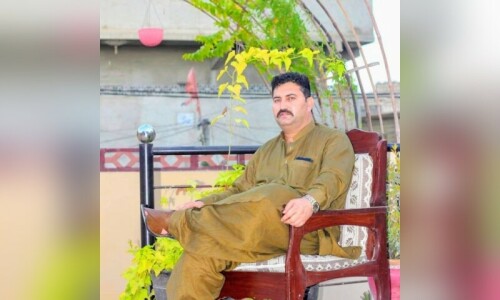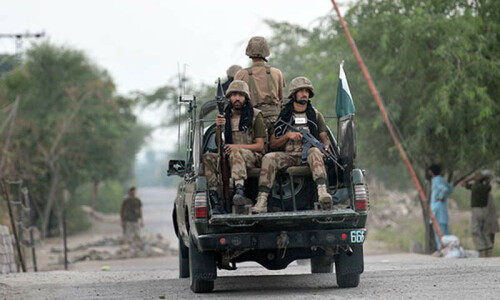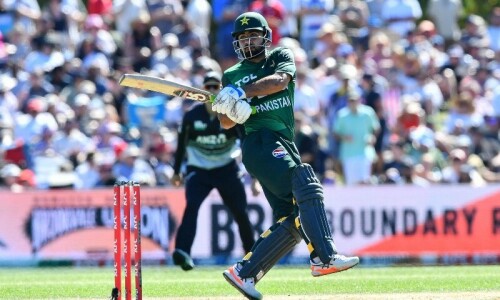A PATTERN seems to be developing in the government’s so-called strategy against militancy: after meetings with security officials, the resolve to defend the country by whatever means — militarily too — is reiterated, while after meetings with political allies, the preference for talks is reinforced. If that were not confusing enough, there is no consistency in the talks strategy either, even on something as seemingly straightforward as who will be the principal interlocutors between the TTP and the federal government. On Tuesday, Prime Minister Nawaz Sharif appeared to have authorised Samiul Haq, the so-called godfather of the Afghan Taliban because of its leadership’s ties to the maulana’s infamous madressah in Akora Khattak, to reach out to the TTP and set the stage for dialogue.
What, then, has become of Fazlur Rehman, a fierce rival of Samiul Haq, and his efforts to try and set the stage for dialogue? And what has become of the team of so-called notables who Interior Minister Nisar Ali Khan had been on the verge of sending to the Waziristan agencies before Hakeemullah Mehsud was killed in a drone strike? Are the interior minister and prime minister even on the same page anymore? For the interior minister appeared to contradict the prime minister hours after the announcement of Samiul Haq’s new task. The questions just keep piling up, with answers nowhere in sight. About the prime minister’s new point man for negotiations too there are several questions. Samiul Haq may have some ties with the new TTP chief and his deputy, but in May this year, in an interview with this newspaper, he admitted to knowing little about the TTP and the various groups that operate under its umbrella. So is the government really still just splashing about, looking here, there and everywhere for anything that may work in its bid for talks with the TTP rather than having a focused strategy?
If the possibility of the government not having a coherent strategy to deal with militancy half a year into its rule is unsettling enough, what is equally worrying is how tone-deaf the government appears on the signalling front. Ultimately, government-appointed interlocutors are supposed to help work towards an agreement that reinforces the status quo of the state and the constitution being the only acceptable centres of power and legitimacy. But how can a known Taliban sympathiser help achieve that? Yet again, the government seems to be willing to cede the narrative, initiative and control of a dialogue process to elements who have more in common with the Taliban’s worldview than what Pakistan should be: a constitutional democracy with modern rights and freedoms.












































